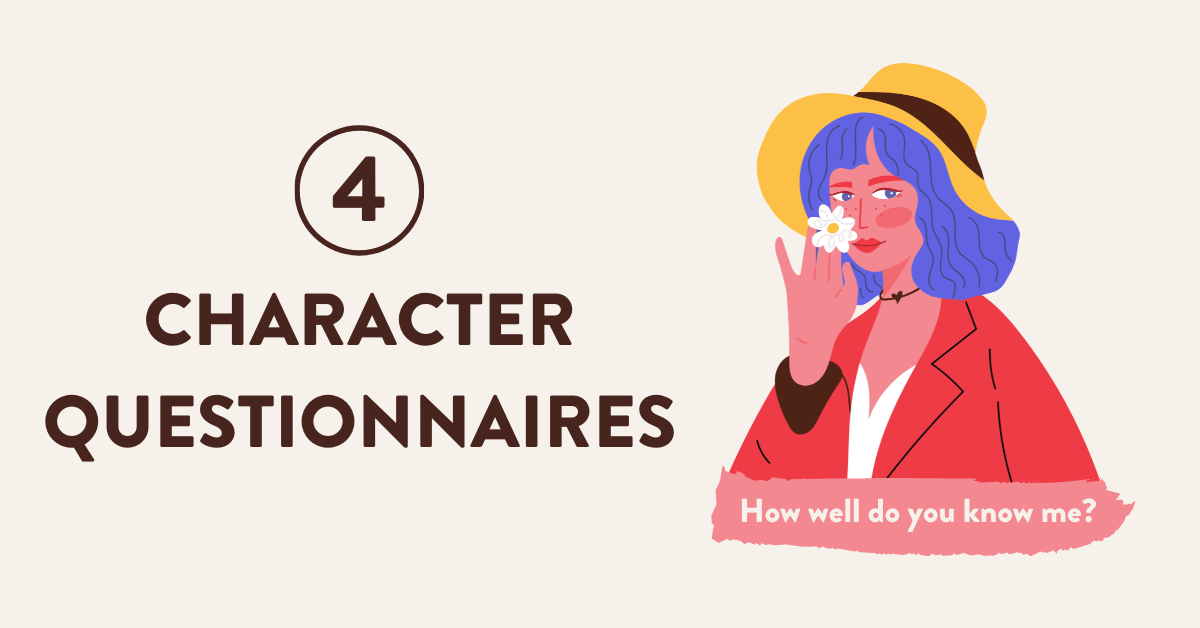Your characters matter more than your plot. I’ll say it again: your characters matter more than your plot. You can give your audience dragons, mystery, romance, or even a massacre at a wedding, but none of that will matter if the reader doesn’t care what happens to the people. They are the ones who drive […]
He got up and sat on the edge of the bedstead with his back to the window. “It’s better not to sleep at all,” he decided. There was a cold damp draught from the window, however; without getting up he drew the blanket over him and wrapped himself in it. He was not thinking of anything and did not want to think. But one image rose after another, incoherent scraps of thought without beginning or end passed through his mind. He sank into drowsiness. Perhaps the cold, or the dampness, or the dark, or the wind that howled under the window and tossed the trees roused a sort of persistent craving for the fantastic. He kept dwelling on images of flowers, he fancied a charming flower garden, a bright, warm, almost hot day, a holiday—Trinity day. A fine, sumptuous country cottage in the English taste overgrown with fragrant flowers, with flower beds going round the house; the porch, wreathed in climbers, was surrounded with beds of roses. A light, cool staircase, carpeted with rich rugs, was decorated with rare plants in china pots. He noticed particularly in the windows nosegays of tender, white, heavily fragrant narcissus bending over their bright, green, thick long stalks. He was reluctant to move away from them, but he went up the stairs and came into a large, high drawing-room and again everywhere—at the windows, the doors on to the balcony, and on the balcony itself—were flowers. The floors were strewn with freshly-cut fragrant hay, the windows were open, a fresh, cool, light air came into the room. The birds were chirruping under the window, and in the middle of the room, on a table covered with a white satin shroud, stood a coffin. The coffin was covered with white silk and edged with a thick white frill; wreaths of flowers surrounded it on all sides. Among the flowers lay a girl in a white muslin dress, with her arms crossed and pressed on her bosom, as though carved out of marble. But her loose fair hair was wet; there was a wreath of roses on her head. The stern and already rigid profile of her face looked as though chiselled of marble too, and the smile on her pale lips was full of an immense unchildish misery and sorrowful appeal. Svidrigaïlov knew that girl; there was no holy image, no burning candle beside the coffin; no sound of prayers: the girl had drowned herself. She was only fourteen, but her heart was broken. And she had destroyed herself, crushed by an insult that had appalled and amazed that childish soul, had smirched that angel purity with unmerited disgrace and torn from her a last scream of despair, unheeded and brutally disregarded, on a dark night in the cold and wet while the wind howled
The Blog
- All posts
- All Popular Posts
- Characters
- Children's Books
- Dialogue
- Editing
- Endings
- Literary Agents
- Marketing
- Novels
- Plot
- Point of View
- Publishers
- Short Stories
- Writing Techniques
- Writing Wisdom
- Character Development Jetpack: 6 Tricks & 9 Questions

- The Gigantic List of Character Descriptions (70+ examples)

The vast majority of character descriptions are simply lazy. They recycle typical ideas about hair, eye color, and build, giving you more information about the character’s fitting for a dress or suit than the type of information you need to know them intimately. The first thing you should do when describing a character is to pick a […]
- 4 Character Questionnaire Tests — Can You Pass Them?

There are lots of character questionnaires out there stuffed with 200, 300, and even 400 questions. This is overkill. It’s not about how many questions you can answer, it’s about what questions you’re asking. The majority of questions on these questionnaires are filler that waste the author’s time. I mean, “How does this character view […]


